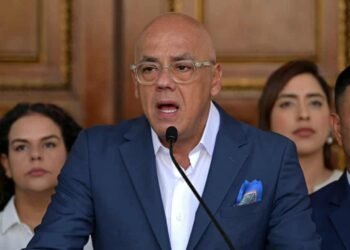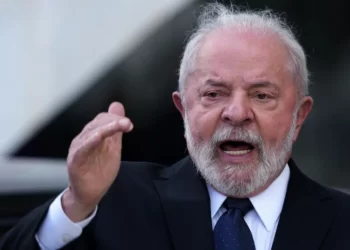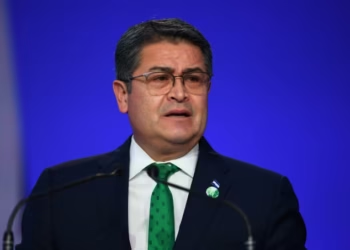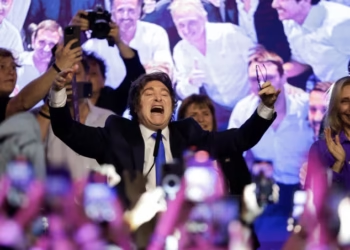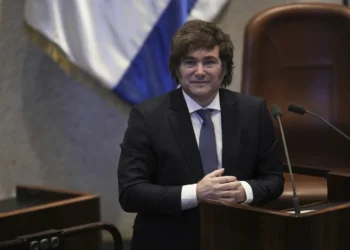The armed forces have been a cornerstone of Nicolás Maduro’s hold on power since Hugo Chávez, his mentor and predecessor, staged an uprising against an unpopular austerity government in 1992.
Since assuming the presidency in 2013, Maduro has consistently deployed troops to quash protests and rewarded senior officers with lucrative government positions and control over key industries.
As a highly contentious election looms, potentially threatening Maduro’s grip on power, the self-proclaimed socialist is intensifying efforts to solidify the loyalty of the military — the traditional arbiter of political disputes in Venezuela — ensuring top commanders remain loyal.
In recent days, Maduro has been a constant presence on state television, attending a graduation ceremony for 25,000 police officers and lauding them as the frontline defense against what he describes as attempts by right-wing extremists to incite chaos.
He has also promoted numerous officers and conferred a new title on his longtime defense minister, Vladimir Padrino López: “General of the Sovereign People.”
“The destiny of Venezuela depends on our victory,” Maduro declared at a rally. “If we want to avoid a bloodbath or a fratricidal civil war triggered by the fascists, then we must guarantee the biggest electoral victory ever.”
The military leadership has remained steadfast with Maduro, engaging in political skirmishes instead of their traditional role of safeguarding the vote.
Gen. Domingo Hernández Lárez, head of the joint chiefs of staff, posted a photo on social media, purportedly showing opposition leader María Corina Machado speaking in front of a whiteboard with notes calling for the “elimination” of the armed forces.

Machado, barred from running and supporting stand-in candidate Edmundo Gonzalez, dismissed the accusation as “fake news.” A media watchdog group confirmed the image was manipulated.
Maduro’s opponents have long faced challenges in swaying the military. The armed forces have been central to Maduro’s power since Hugo Chávez, a former tank commander, led a 1992 uprising and later purged officers indoctrinated to fight communism.
Maduro, despite lacking Chávez’s military background, has cultivated his own cadre of uniformed allies, many of whom, like him, face allegations of corruption and human rights abuses.
The National Guard has reportedly imported anti-riot gear and refurbished armored vehicles for potential use in quelling protests, according to retired Gen. Rodolfo Camacho, a Maduro opponent who writes military affairs report.
Desertion On The Rise
Meanwhile, the government has not hesitated to punish dissenting soldiers. About half of the 301 individuals classified as political prisoners by the Caracas-based legal assistance cooperative Foro Penal are members of the armed forces.
While a barracks revolt seems unlikely, discontent among the rank and file is widespread, noted William Brownfield, a former U.S. Ambassador to Venezuela and senior fellow at the Wilson Center in Washington.
As Venezuela’s economy has deteriorated — shrinking 71% between 2012 and 2020, with inflation soaring over 130,000% — the cash bonuses and perks awarded to military families have lost much of their appeal.
Desertion has increased among the roughly 150,000 military members, with many joining the millions of Venezuelans fleeing the country rather than defending a government they no longer support.
“The conscripts, enlisted personnel, and low-ranking officers are not raking in the cash,” Brownfield said.
“Many probably have relatives who have fled Venezuela, and they are susceptible to the opposition’s message.”
Gen. Manuel Cristopher Figuera, a former spy chief, suggested any defiance against Maduro would likely originate from the lower ranks in the form of a refusal to suppress protesters.
Opposition leaders have vowed to “defend” their vote against tampering, and given Venezuela’s recent history of political violence, many citizens are bracing for demonstrations following the election.
READ ALSO: Ghana’s Economy Progressing Steadily Amid Challenges





